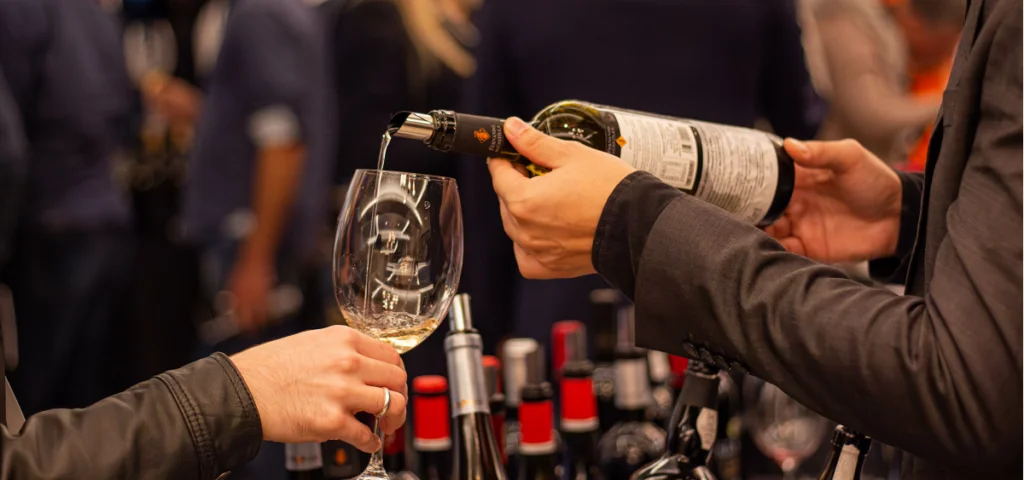“Bring Your Own Wine” restaurants haven’t always been regulated by law. It wasn’t until the 1980s that laws were created to make rules for these types of restaurants. Do you know what these rules are, and what kind of alcohol you’re allowed to bring?

“Bring Your Own Wine” restaurants weren’t invented in Quebec. According to the cultural newspaper Voir (French only), this concept was already popular in the UK and the USA, where the terms “Bring Your Own Wine” (BYOW) and “Bring Your Own Bottle” (BYOB) were coined.
The concept gained traction in the 1980s. A group of Montreal merchants took advantage of the lack of laws in this area by allowing their customers to bring their own alcoholic beverages.
At the time, many restaurants considered this unfair: some restaurants had to pay hefty sums to offer alcohol to their customers, while “BYOW” restaurants were spared this expense. This new trend began at a time when the restaurant industry was in crisis.
The government decided to step in by creating laws that forced all restaurants to hold a liquor permit, whether they sold alcohol or allowed customers to bring their own.
Did you say “liquor permit”?
In 2010, a restaurant owner in Terrebonne allowed his customers to bring their own alcohol and consume it on the premises. The restaurant owner had applied for a liquor permit but hadn’t received one yet. Caught in the act by a police officer, who noticed the “Bring Your Own Wine” sign despite the lack of permit, the owner received sanctions.
By law, a restaurant must have a permit to sell or serve alcoholic beverages. Simply applying for a permit isn’t enough.
There are different types of permits. A permit without option allows owners to sell alcohol for on-site consumption. This permit alone does not give them the right to serve alcohol brought in by customers.
If restaurants want to allow their customers to bring their own drinks, they must apply for a liquor permit with a “service option”. This permit means that restaurants can serve their own alcoholic beverages or let their customers drink the alcohol they bring.
Not just any alcohol
When a restaurant obtains a liquor permit with the service option, that doesn’t mean that all alcoholic beverages are permitted on the premises. As a general rule, customers can bring bottles of wine, beer, cider and ready-to-drink beverages made from alcohol or spirits containing no more than 7% alcohol.
In “Bring Your Own Wine” restaurants, customers can’t drink the following:
- alcoholic beverages and spirits such as flavored liqueurs and strong drinks,
- home-made beverages.
What about non-BYOW restaurants?
Restaurants that have a liquor permit without option can only serve bottles purchased from the Société des alcools du Québec (Quebec alcohol board or “SAQ”) or from a licensed artisanal production, brewer, beer distributor or cider manufacturer.
Every bottle in the restaurant, including those used to prepare food, must bear a label called a “duty stamp” or a special sticker from the Régie des alcools, des courses et des jeux (Quebec alcohol and gaming commission). This label is important, as it shows where the alcohol comes from and that it was obtained in a legitimate way.
Restaurants can face severe penalties if they don’t respect this rule – even if their mistake was unintentional! A restaurant owner learned this the hard way in 2023. One day, a customer forgot her bottle of Californian red wine in the restaurant’s cellar, mistakenly thinking that the restaurant could serve alcohol. The bottle didn’t have a duty stamp. The restaurant’s liquor permit was suspended for a day, and the wine was placed under seal.
The outcome of this case would have been different if the restaurant had a liquor permit with the service option. The restaurant could have then served wine, beer, cider or ready-to-drink beverages brought in by customers, whether stamped or not.
Exceptions to the duty stamp and sticker system
Like with most rules, there are exceptions! Light cider that is industrially produced doesn’t have to bear the duty stamp. However, artisanal cider must always be stamped.
As for beers, bottles and cans must bear the label “CSP” for “consommation sur place” (on-site consumption). This mention is required by Revenu Québec and plays a similar role to the Régie’s duty stamp or sticker.
The “CSP” label was introduced in 1971, to counter money laundering and illegal sales. It also ensures that taxes were fairly allocated between products sold for on-site consumption in bars and restaurants, and products for home consumption sold in convenience and grocery stores.
| Did you know? The law is strict with alcohol and drug consumption, namely if you drive afterwards. If you drive above the legal alcohol and drug limit, you risk a license suspension, fines and even prison time. |





